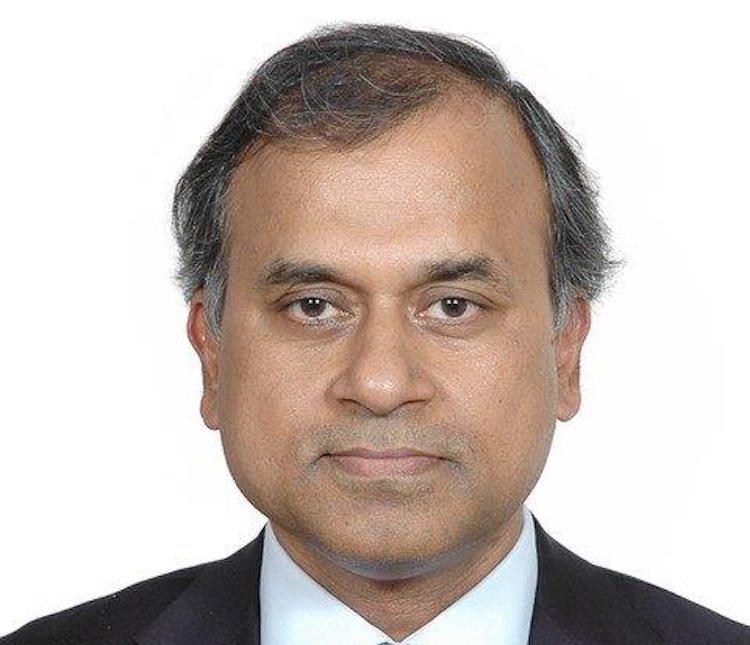By Radwan Jakeem
NEW YORK (IDN) – “Our world has reached a heart-wrenching milestone: #COVID19 has now claimed two million lives. Sadly, the impact of the pandemic has been made worse by the absence of global coordination. In the memory of those two million souls, the world must act with far greater solidarity,” tweeted UN Secretary-General António Guterres.
With more than two million lives now lost worldwide to COVID-19, the UN Chief appealed countries to work together and help each other to end the pandemic and save lives. In a video statement, he noted that the absence of a global coordinated effort has worsened the pandemic’s deadly impact.
“Behind this staggering number are names and faces: the smile now only a memory, the seat forever empty at the dinner table, the room that echoes with the silence of a loved one,” Mr. Guterres said on January 15.
“In the memory of those two million souls, the world must act with far greater solidarity,” he added. Since its discovery at the end of December 2019, COVID-19 has now spread to all corners of the world, with cases in 191 countries and regions. Deaths due to the disease reached the grim milestone of one million only in September.
The milestone gives us all “pause for reflection”, said the head of the World Health Organization (WHO), Tedros Adhanom Gehbreyesus in an op-ed, but represent a moment to come together in solidarity “to fight back against this virus”.
“History will judge us on the decisions we do and don’t make in the months ahead. Let’s seize the opportunity and bridge national boundaries to save lives and livelihoods.”
He repeated the key message that it is never too late to turn things around if a country becomes mired in a further wave of transmission: “While we await further breakthroughs, we have seen that the virus can be effectively contained through the application of tried and tested public health measures.”
In addition to the socio-economic impact of the pandemic has been massive, with countless jobs and livelihoods lost globally, and millions pushed into poverty and hunger.
![]()
Mr. Guterres said that though safe and effective COVID-19 vaccines are being rolled out, the disparity continues between nations.
“Vaccines are reaching high-income countries quickly, while the world’s poorest have none at all,” he said, adding that “some countries are pursuing side deals, even procuring beyond need”.
The UN chief went on to note that while governments have a responsibility to protect their populations, “‘vaccinationalism’ is self-defeating and will delay a global recovery.”
“COVID-19 cannot be beaten one country at a time,” he stressed. Mr. Guterres called on countries to commit now to sharing any excess doses of vaccines, to help urgently vaccinate health workers around the world and prevent health systems from collapsing.
He also reiterated the need to ensure full funding for the Access to COVID-19 Tools Accelerator (ACT Accelerator) and its COVAX facility, to make vaccines available and affordable to all.
At the same time, people must remember and practice “simple and proven” steps to keep each other safe: wearing masks, physically distancing, avoiding crowds, and hand hygiene.
“Our world can only get ahead of this virus one way – together. Global solidarity will save lives, protect people and help defeat this vicious virus”, added Mr. Guterres.
Meanwhile, a new COVID-19 diagnostic test, which can provide reliable results quickly, at a lower price and using less sophisticated technology, will help expand capacity to detect cases in low and middle-income countries, the WHO has announced.
Through agreements between WHO and partners, 120 million such tests will be made available to these countries, over a period of six months.
This will enable the expansion of testing, particularly in hard-to-reach areas that do not have lab facilities or enough trained health workers to carry out PCR tests,” WHO Director-General said at a media briefing, adding that it would be “a vital addition2 to countries’ testing capacity and is especially important in areas of high transmission.
The tests – antigen rapid diagnostic tests (Ag RDTs) – priced at $5 per unit, are easy to use and highly portable, and provide reliable results in approximately 15 to 30 minutes – substantially faster as well as cheaper than polymerase-chain reaction (PCR) tests, according to WHO.
“The quicker COVID-19 can be diagnosed, the quicker action can be taken to treat and isolate those with the virus and trace their contacts,” said Mr. Tedros. With agreement and seed funding already secured, the need now is the full amount of funds to buy the tests, he added. [IDN-InDepthNews – 17 January 2021]
Photo: Health care workers at a hospital moving a patient who died of COVID-19 in New York in April 2020. Credit: UN Photo/EvanSchneider
IDN is flagship agency of the Non-profit International Press Syndicate.
Visit us on Facebook and Twitter.
This article is published under the Creative Commons Attribution 4.0 International licence. You are free to share, remix, tweak and build upon it non-commercially. Please give due credit.

